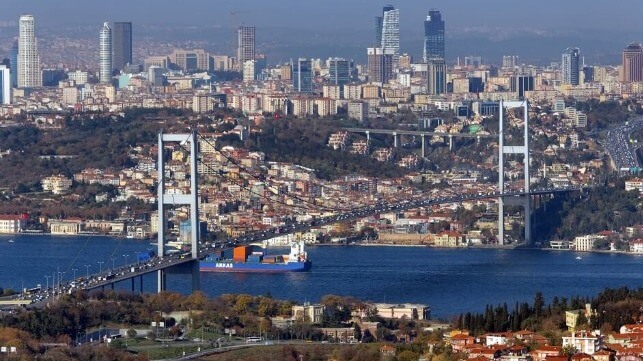Turkey Rolls Out its Own Carbon Price on Shipping

The Turkish parliament has recently approved plans for a carbon pricing mechanism for the country’s shipping sector. The amendment to the ports law stipulates measures for Turkey to start taxing shipping emissions. The fees will be collected from shipowners for CO2 emissions released by commercial ships entering and departing Turkish seaports.
The law was published in the Official gazette on July 9. The presidency is expected to issue a regulation with guidelines on the types of ships to be included in the scope, tonnage, rates of emission fees, and the procedures for monitoring, reporting and verification of emissions from vessels. This policy is projected to regulate over 10 million tons of CO2, equivalent to what Luxembourg emits in a year.
This approval comes ahead of Turkey’s broader upcoming carbon market. In its Climate Change Mitigation Strategy and Action Plan (CCMSAP) for 2024 to 2030 (released early this year), the Turkish government proposes establishment of an Emissions Trading Scheme (ETS). Among other reasons, the ETS seeks to align with the EU’s carbon market and the Carbon Border Adjustment Mechanism (EU CBAM).
With EU container transshipment traffic rising in Turkish ports, calls have been intensifying for the EU ETS to be streamlined to avoid diversion of maritime trade to non-EU countries. According to an update to the EU ETS adopted last year by European commission (EC), none of the Turkish ports fall under the criteria of neighboring container transshipment ports. This policy allows the EC to include non-EU transshipment ports in its carbon tax mechanism.

that matters most
Get the latest maritime news delivered to your inbox daily.
Data by Turkish Transport Minister show that the country’s container transshipment traffic grew to 1.2 million TEU in January-May, representing a 54 percent rise year-on-year. EU countries made up the largest share of destinations with 340,000 TEU, 28 percent of the total traffic. This growth had led to some concerns that some carriers could potentially transship goods through Turkey to avoid the EU’s carbon taxes.
In addition to closing this loophole, the implementation of its ETS policy in shipping will harmonize maritime trade between Turkey and one of its largest trading partners.
